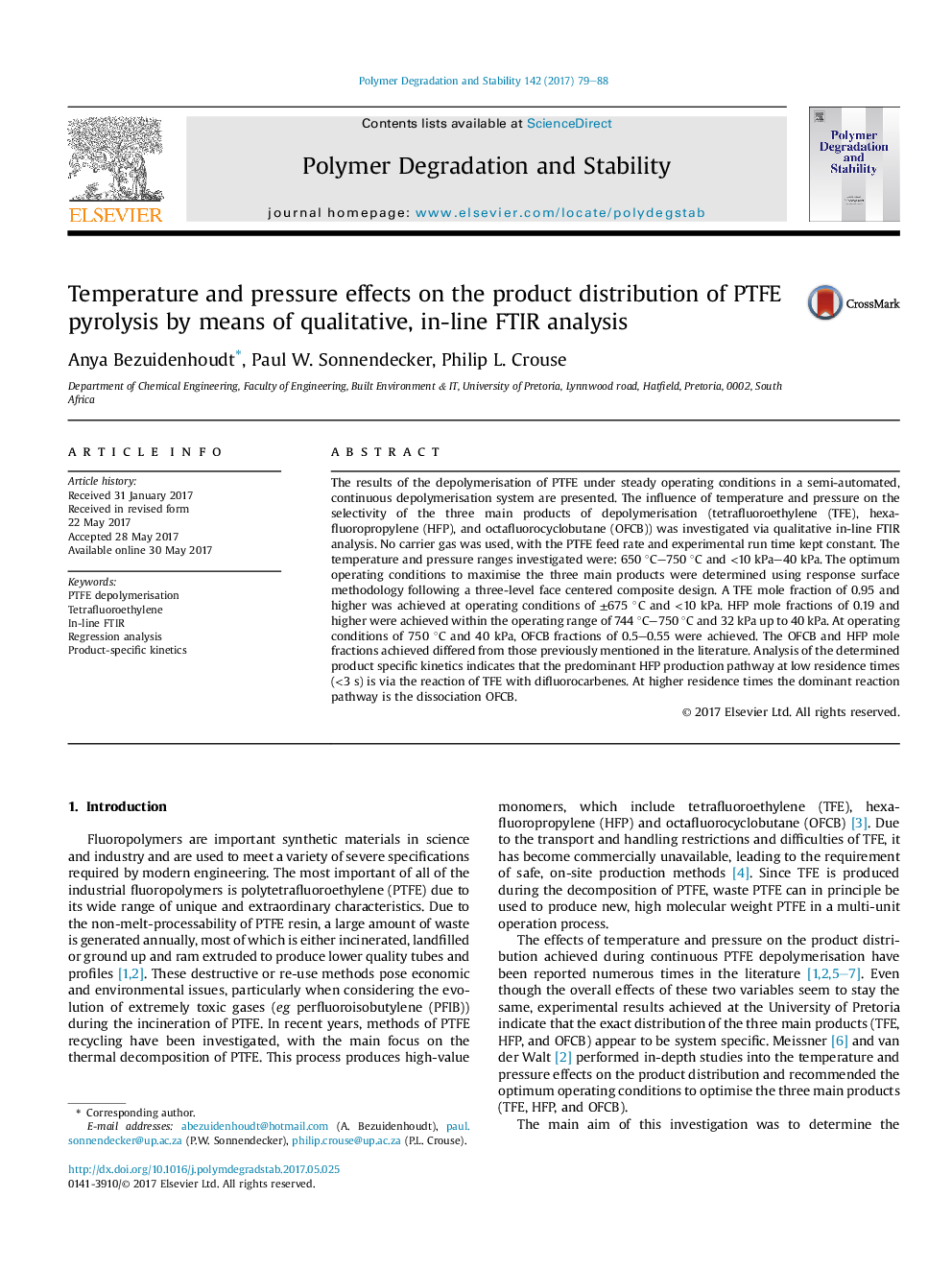| Article ID | Journal | Published Year | Pages | File Type |
|---|---|---|---|---|
| 5200653 | Polymer Degradation and Stability | 2017 | 10 Pages |
The results of the depolymerisation of PTFE under steady operating conditions in a semi-automated, continuous depolymerisation system are presented. The influence of temperature and pressure on the selectivity of the three main products of depolymerisation (tetrafluoroethylene (TFE), hexafluoropropylene (HFP), and octafluorocyclobutane (OFCB)) was investigated via qualitative in-line FTIR analysis. No carrier gas was used, with the PTFE feed rate and experimental run time kept constant. The temperature and pressure ranges investigated were: 650 °C-750 °C and <10 kPa-40 kPa. The optimum operating conditions to maximise the three main products were determined using response surface methodology following a three-level face centered composite design. A TFE mole fraction of 0.95 and higher was achieved at operating conditions of ±675 °C and <10 kPa. HFP mole fractions of 0.19 and higher were achieved within the operating range of 744 °C-750 °C and 32 kPa up to 40 kPa. At operating conditions of 750 °C and 40 kPa, OFCB fractions of 0.5-0.55 were achieved. The OFCB and HFP mole fractions achieved differed from those previously mentioned in the literature. Analysis of the determined product specific kinetics indicates that the predominant HFP production pathway at low residence times (<3 s) is via the reaction of TFE with difluorocarbenes. At higher residence times the dominant reaction pathway is the dissociation OFCB.
